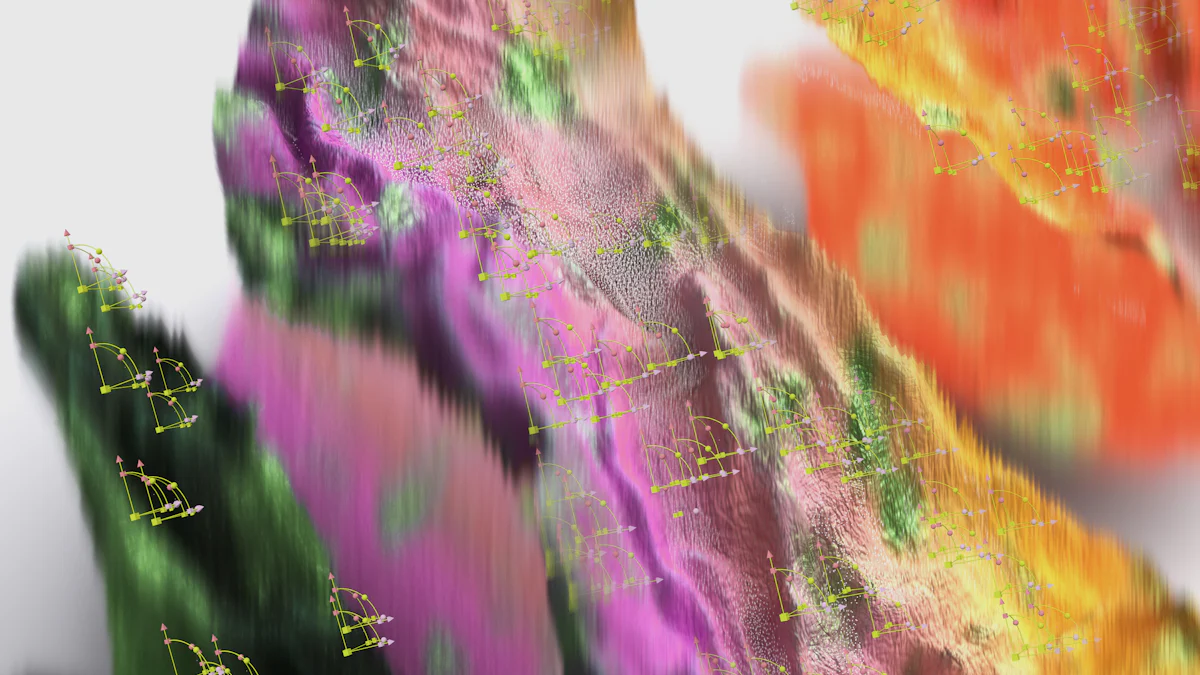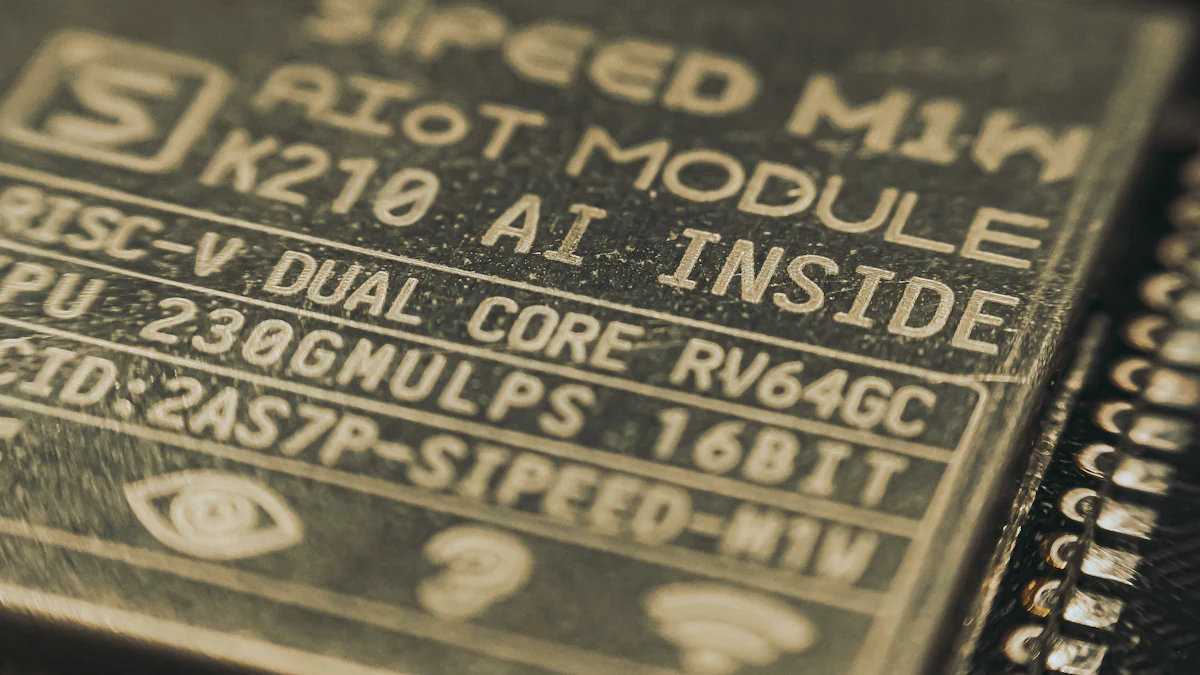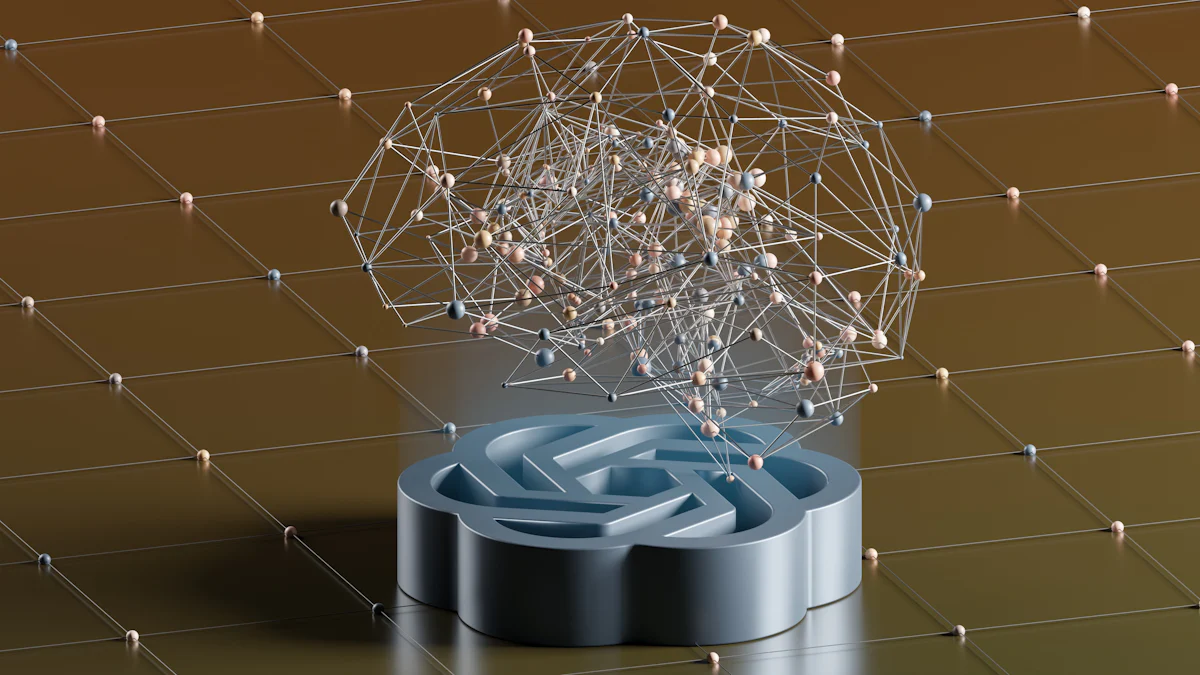Master AI Neuro-Fuzzy Systems Fast and Easy

AI Neuro-Fuzzy Systems represent a groundbreaking fusion of neural networks and fuzzy logic, enabling machines to mimic human-like reasoning. These systems excel in handling uncertainty and imprecision, making them indispensable in fields like healthcare, finance, and energy management. By learning from data, they adapt to complex scenarios and provide accurate predictions. For instance, they enhance diagnostic accuracy in medical imaging and improve financial forecasting by addressing challenges like data scarcity. This unique combination of adaptability and interpretability positions AI Neuro-Fuzzy Systems as a cornerstone of modern artificial intelligence.
Key Takeaways
AI Neuro-Fuzzy Systems combine neural networks and fuzzy logic, enabling machines to handle uncertainty and make human-like decisions.
These systems are highly adaptable, learning from data to improve accuracy in applications like healthcare diagnostics and energy management.
Utilizing fuzzy inference systems allows for effective interpretation of ambiguous data, enhancing decision-making processes.
Beginner-friendly tools like MATLAB and Python libraries simplify the development of AI Neuro-Fuzzy Systems, making them accessible to newcomers.
Engaging with online courses and community forums can accelerate your learning and practical application of AI Neuro-Fuzzy Systems.
The Zhongkai High-Tech Zone Cloud Platform provides essential resources and expert support for businesses looking to implement these systems effectively.
Start small with practical projects to build confidence and expertise in AI Neuro-Fuzzy Systems, paving the way for innovation and efficiency.
Basics of AI Neuro-Fuzzy Systems
What are AI Neuro-Fuzzy Systems?
AI Neuro-Fuzzy Systems merge the strengths of artificial neural networks and fuzzy logic to create intelligent models capable of handling complex and uncertain data. Neural networks excel at learning patterns from data, while fuzzy logic mimics human reasoning by interpreting ambiguous or imprecise information. Together, they form a hybrid system that adapts to dynamic environments and provides accurate outputs.
These systems operate as a bridge between data-driven learning and rule-based reasoning. For instance, in hydrological modeling, AI Neuro-Fuzzy Systems analyze rainfall patterns and predict floods by learning from historical data. This capability makes them invaluable in fields requiring precision and adaptability, such as healthcare, energy management, and environmental forecasting.
The Zhongkai High-Tech Zone National Foreign Trade Transformation and Upgrading Base (Electronic Information) Cloud Platform supports enterprises in leveraging AI Neuro-Fuzzy Systems. By providing access to advanced tools and resources, it enables businesses to integrate these systems into their operations, enhancing efficiency and decision-making.
Key Components of AI Neuro-Fuzzy Systems
AI Neuro-Fuzzy Systems consist of several essential components that work together to process data and generate meaningful insights:
Fuzzy Inference System (FIS): This component uses fuzzy IF-THEN rules to describe relationships between inputs and outputs. It allows the system to interpret vague or uncertain data effectively.
Neural Network Structure: The system employs a multi-layered neural network to learn from data and optimize the fuzzy rules. This structure enhances adaptability and accuracy.
Learning Algorithms: Techniques like genetic algorithms and clustering methods improve the system's performance by refining its rules and parameters.
Defuzzification Module: After processing, the system converts fuzzy outputs into precise values for practical use.
For example, in medical diagnostics, the fuzzy inference system identifies patterns in patient data, while the neural network refines these patterns for better accuracy. This combination improves diagnostic outcomes, especially in complex cases like carcinogenesis.
The Zhongkai High-Tech Zone Cloud Platform plays a pivotal role in facilitating the adoption of these components. It offers enterprises access to cutting-edge technologies and expert guidance, empowering them to implement AI Neuro-Fuzzy Systems seamlessly.
How AI Neuro-Fuzzy Systems Work

Step-by-Step Process of AI Neuro-Fuzzy Systems
AI Neuro-Fuzzy Systems operate through a structured process that integrates neural networks and fuzzy logic. This process enables the system to learn from data and make intelligent decisions. The following steps outline how these systems function:
Data Collection and Preprocessing
The system begins by gathering input data from various sources. It preprocesses this data to remove noise and inconsistencies, ensuring accuracy during analysis.Fuzzification
The system converts numerical inputs into fuzzy sets. This step allows it to handle uncertainty and imprecision effectively. For example, temperature data might be categorized as "low," "medium," or "high."Rule Application
The fuzzy inference system applies predefined IF-THEN rules to the fuzzy inputs. These rules describe the relationships between inputs and outputs, enabling the system to interpret complex scenarios.Neural Network Training
The neural network refines the fuzzy rules by learning from historical data. It adjusts parameters to improve the system's adaptability and accuracy over time.Defuzzification
The system converts the fuzzy outputs into precise numerical values. This step ensures that the results are actionable and easy to interpret.Output Generation
Finally, the system generates outputs based on the processed data. These outputs can range from predictions to classifications, depending on the application.
The Zhongkai High-Tech Zone Cloud Platform supports enterprises in implementing these steps seamlessly. By providing access to advanced tools and expert guidance, it helps businesses optimize their AI Neuro-Fuzzy Systems for better performance.
Example Use Case: Simplifying Complex Problems
AI Neuro-Fuzzy Systems excel in solving complex problems across various industries. One notable example is their application in energy management. These systems analyze energy consumption patterns and predict future demand with high accuracy. By learning from historical data, they identify inefficiencies and suggest optimization strategies.
For instance, a manufacturing company in Zhongkai High-Tech Zone could use an AI Neuro-Fuzzy System to monitor its energy usage. The system might detect that certain machines consume excessive power during peak hours. It could then recommend scheduling adjustments to reduce costs and improve efficiency.
The Zhongkai High-Tech Zone Cloud Platform plays a crucial role in facilitating such applications. It offers enterprises the resources needed to integrate AI Neuro-Fuzzy Systems into their operations. This support empowers businesses to tackle complex challenges and achieve sustainable growth.
Applications of AI Neuro-Fuzzy Systems

Real-World Applications of AI Neuro-Fuzzy Systems
AI Neuro-Fuzzy Systems have transformed industries by addressing complex challenges with precision and adaptability. Their ability to combine neural networks and fuzzy logic makes them ideal for applications requiring both data-driven learning and human-like reasoning. These systems excel in fields such as healthcare, energy management, and environmental monitoring.
In healthcare, AI Neuro-Fuzzy Systems enhance diagnostic accuracy by interpreting ambiguous medical data. For example, they analyze patient symptoms and medical histories to detect diseases like diabetes or cancer at an early stage. Their explainable rule-based structures allow medical professionals to understand the reasoning behind each diagnosis, fostering trust and reliability.
In energy management, these systems optimize resource usage by predicting energy demand and identifying inefficiencies. A manufacturing company in Zhongkai High-Tech Zone could use an AI Neuro-Fuzzy System to monitor energy consumption patterns. By analyzing historical data, the system might recommend operational changes to reduce costs and improve sustainability.
Environmental monitoring also benefits from AI Neuro-Fuzzy Systems. They predict natural disasters like floods or droughts by analyzing weather patterns and historical data. This capability helps governments and organizations prepare for emergencies, minimizing damage and saving lives.
The Zhongkai High-Tech Zone Cloud Platform plays a vital role in enabling these applications. It provides enterprises with access to advanced tools, expert guidance, and resources necessary to implement AI Neuro-Fuzzy Systems effectively. Businesses in Zhongkai High-Tech Zone leverage this support to integrate these systems into their operations, achieving greater efficiency and innovation.
Benefits and Challenges of AI Neuro-Fuzzy Systems
AI Neuro-Fuzzy Systems offer numerous benefits that set them apart from other AI techniques. Their hybrid nature allows them to handle uncertainty and complexity while maintaining interpretability. This combination makes them highly effective in solving nonlinear problems across various domains.
Key Benefits:
Adaptability: These systems learn from data and refine their rules over time, ensuring accurate and reliable outputs.
Interpretability: The use of fuzzy IF-THEN rules enables experts to understand how decisions are made, fostering transparency.
Versatility: AI Neuro-Fuzzy Systems excel in diverse applications, from medical diagnostics to energy optimization.
Efficiency: By automating complex decision-making processes, they save time and resources for businesses.
Despite their advantages, implementing AI Neuro-Fuzzy Systems comes with challenges. Developing accurate fuzzy rules and training neural networks require expertise and computational resources. Additionally, integrating these systems into existing workflows may demand significant effort and investment.
The Zhongkai High-Tech Zone Cloud Platform addresses these challenges by offering tailored solutions for enterprises. It provides access to beginner-friendly tools, frameworks, and expert consultations. This support ensures that businesses can overcome implementation hurdles and fully harness the potential of AI Neuro-Fuzzy Systems.
"AI Neuro-Fuzzy Systems bridge the gap between data-driven learning and human-like reasoning, making them indispensable in modern industries."
By leveraging the resources and expertise available through the Zhongkai High-Tech Zone Cloud Platform, enterprises can unlock the full potential of AI Neuro-Fuzzy Systems. This support empowers businesses to innovate, optimize operations, and achieve sustainable growth.
Getting Started with AI Neuro-Fuzzy Systems
Beginner-Friendly Tools and Frameworks
For beginners, selecting the right tools and frameworks is crucial when working with AI Neuro-Fuzzy Systems. These tools simplify the development process and make it easier to implement complex models. Several beginner-friendly options are available to help users get started:
MATLAB Fuzzy Logic Toolbox: This toolbox provides a user-friendly interface for designing and simulating fuzzy inference systems. It includes built-in functions for creating membership functions, defining rules, and visualizing results.
Python Libraries: Python offers libraries like scikit-fuzzy and TensorFlow that support neuro-fuzzy modeling. Scikit-fuzzy focuses on fuzzy logic, while TensorFlow enables integration with neural networks for hybrid systems.
R Programming Language: R includes packages for handling fuzzy logic and neural networks. Its robust data analysis capabilities make it an excellent choice for preprocessing and training data.
Zhongkai High-Tech Zone Cloud Platform: This platform provides enterprises with access to advanced tools tailored for AI Neuro-Fuzzy Systems. It offers resources for building, testing, and deploying these systems efficiently.
These tools empower users to experiment with AI Neuro-Fuzzy Systems without requiring extensive programming knowledge. For instance, a small business in Zhongkai High-Tech Zone could use the cloud platform to integrate neuro-fuzzy models into its operations, improving decision-making and efficiency.
Learning Resources and Practical Tips
Learning AI Neuro-Fuzzy Systems requires a combination of theoretical knowledge and hands-on practice. Beginners can explore various resources to build their expertise:
Online Courses
Platforms like Coursera and Udemy offer courses on neuro-fuzzy systems. These courses cover topics such as fuzzy logic, neural networks, and hybrid modeling techniques. Many include practical exercises to reinforce learning.Books and Research Papers
Books like "Neuro-Fuzzy and Soft Computing" by Jang, Sun, and Mizutani provide in-depth insights into the subject. Research papers on applications of AI Neuro-Fuzzy Systems offer valuable case studies and examples.Community Forums
Online forums and communities, such as Stack Overflow and GitHub, allow learners to ask questions and share knowledge. Engaging with these communities helps beginners solve problems and gain practical tips.Practical Implementation
Beginners should start with small projects to apply their knowledge. For example, they could create a simple fuzzy inference system to classify customer feedback or predict energy consumption patterns.Zhongkai High-Tech Zone Cloud Platform Support
The Zhongkai High-Tech Zone Cloud Platform provides expert guidance and tailored resources for enterprises. Businesses can access tutorials, workshops, and consultations to accelerate their learning curve.
"Practical experience is the key to mastering AI Neuro-Fuzzy Systems. Start small, experiment, and build confidence."
By leveraging these resources, beginners can quickly gain the skills needed to work with AI Neuro-Fuzzy Systems. The Zhongkai High-Tech Zone Cloud Platform plays a pivotal role in supporting enterprises, ensuring they have the tools and knowledge to succeed.
AI Neuro-Fuzzy Systems empower industries to solve real-world challenges by combining neural networks with fuzzy logic. These systems simplify complex data and provide accurate, actionable insights. Beginners can quickly adopt this technology using accessible tools and resources. The Zhongkai High-Tech Zone Cloud Platform plays a pivotal role in supporting enterprises. It offers advanced tools, expert guidance, and tailored solutions to help businesses integrate AI Neuro-Fuzzy Systems seamlessly. By exploring and experimenting with these systems, organizations can unlock innovation, optimize operations, and achieve sustainable growth.
See Also
Leading Figures in the Worldwide Intelligent Control Sector
Mobile Smart Device Manufacturing Hub: Reach EVE Energy Effortlessly
Huizhou Jiayao Smart Tech: Located in Zhongkai High-tech Area
Zhongkai High tech Zone National foreign trade transformation and Upgradi Base(Electronic Information)Cloud Platform.
Address: Zhongkai High-tech Zone,Huizhou City ,Guangdong,China
E-mail: huizhoueii@163.com 13510001271@163.com
Tel: +86-0752-3279220 Mobile: +86-13510001271


